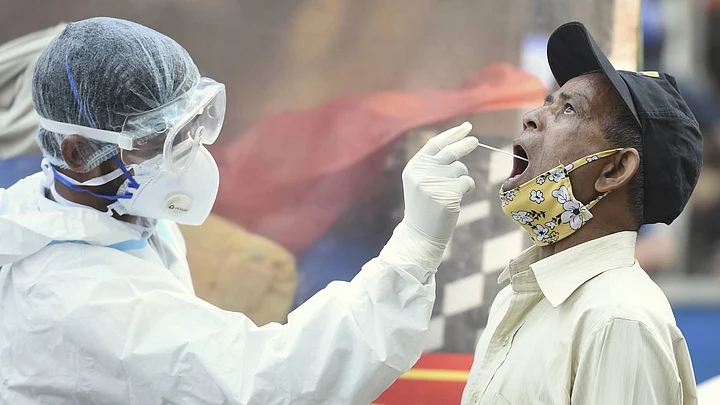As laboratories face a challenge to meet the COVID-19 testing demand, amid the unprecedented upsurge of cases across the country, the Indian Council of Medical Research (ICMR) has come up with guidelines on RT-PCR testing.
What does the ICMR suggest? Who should get tested for COVID-19? How can you ensure that you do not add to the caseload?
Here's what you must know:
Who should get a RT-PCR test?
Any individual presenting with COVID-19 symptoms, which are predominantly:
- Fever with/without cough
- Sore throat
- Breathlessness
- Bodyache
- Recent loss of smell/taste
- Fatigue
- Diarrhea
Any individual who has come in contact with someone who has tested positive for coronavirus.
Who should not get RT-PCR test?
- An individual who has already tested positive on Rapid Antigen Test (RAT) or a RT-PCR
- No testing is required for COVID-19 recovered individuals at the time of ending home isolation or hospital discharge
I have COVID-19 and am in home isolation. Do I not have to test negative after 14 days?
No, you do not have to take another test. You can end isolation after 10 days of complete quarantine, as per Ministry of Health and Family Welfare (MoHFW) guidelines.
I have to undertake inter-state travel. Do I need a negative RT-PCR?
- While some states are still mandating a negative RT-PCR, the ICMR has said that this may be removed completely to ease the load on labs.
- All asymptomatic individuals undertaking essential travel must follow COVID appropriate behavior.
- However, if you have symptoms then travel should be completely avoided to reduce the risk of infection.
I have tested negative on RAT test but have COVID-19 symptoms. Can I get a RT-PCR?
- Yes, as per guidelines all symptomatic individuals identified negative on RAT should get RT-PCR.
- However, they should isolate themselves and follow protocols before results come.
